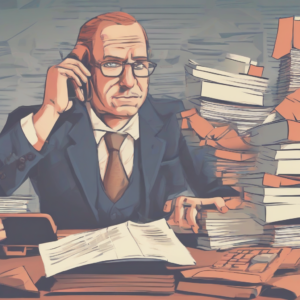Navigating the Labyrinth: Your Comprehensive Guide to Debt Relief Attorneys
Facing overwhelming debt can feel like navigating a labyrinth, a confusing and often frightening maze with no clear exit. The weight of unpaid bills, harassing calls from creditors, and the looming threat of legal action can be paralyzing. This is where debt relief attorneys become invaluable allies, offering specialized knowledge and legal strategies to help you regain control of your financial life. This comprehensive guide will explore the crucial role of debt relief attorneys, outlining their services, the situations where they are most beneficial, and the key factors to consider when selecting the right attorney for your needs.
Understanding the Role of a Debt Relief Attorney
Debt relief attorneys specialize in helping individuals and families manage and resolve overwhelming debt. Unlike debt consolidation companies or credit counselors, who primarily offer advice and debt management plans, debt relief attorneys possess the legal expertise to negotiate with creditors, challenge unfair debt collection practices, and explore various legal avenues for debt resolution. Their services go beyond simply managing debt; they actively work to protect your rights and assets.
- Negotiating with Creditors: A key function is negotiating lower settlements with creditors. Attorneys can leverage their legal knowledge and experience to secure significantly reduced balances, often far below the original debt amount.
- Debt Consolidation: While debt consolidation can be handled independently, an attorney can ensure the process is legally sound and protects your interests. They can help negotiate better terms with creditors involved in the consolidation.
- Bankruptcy Filings: For individuals facing insurmountable debt, bankruptcy may be the most viable option. Debt relief attorneys are skilled in guiding clients through the complex bankruptcy process, ensuring they file the correct type of bankruptcy (Chapter 7 or Chapter 13) and maximizing their chances of a successful discharge.
- Challenging Unfair Debt Collection Practices: Creditors are bound by the Fair Debt Collection Practices Act (FDCPA). Attorneys can identify and challenge illegal or unethical collection tactics, protecting clients from harassment and potential legal repercussions.
- Wage Garnishment and Asset Protection: Attorneys can help prevent or minimize the impact of wage garnishment or asset seizure through strategic legal maneuvers and negotiation.
- Creating and Implementing Debt Management Plans: While not their primary focus, attorneys can work with clients to create and implement realistic debt management plans that align with their financial capabilities and legal protections.
When to Seek the Help of a Debt Relief Attorney
Several situations clearly indicate the need for a debt relief attorney:
- Overwhelming Debt: If your debt exceeds your ability to repay, even with careful budgeting and financial planning, it’s crucial to seek professional legal help.
- Harassing Creditors: Persistent and aggressive collection tactics, including repeated calls, threats, or attempts to seize assets, warrant immediate legal intervention.
- Legal Action: If creditors have filed lawsuits or initiated legal proceedings against you, you must seek legal representation immediately to protect your rights and assets.
- Wage Garnishment or Asset Seizure: Facing wage garnishment or the threat of losing assets requires the expertise of a debt relief attorney to explore legal options and protect your remaining resources.
- Medical Debt: Managing substantial medical debt can be exceptionally challenging. An attorney can negotiate with medical providers and explore options for reducing or eliminating these debts.
- Student Loan Debt: While student loan debt is often difficult to discharge, an attorney can explore options like income-driven repayment plans or potential hardship discharges based on your specific circumstances.
- Confusion and Overwhelm: Navigating the complexities of debt resolution can be daunting. If you feel lost and overwhelmed, a debt relief attorney can provide clarity, guidance, and a structured approach to tackling your debt.
Choosing the Right Debt Relief Attorney
Selecting the appropriate debt relief attorney is a critical decision. Consider these factors:
- Experience and Specialization: Look for an attorney with extensive experience handling debt relief cases, ideally specializing in bankruptcy or debt negotiation. Review their track record and client testimonials.
- Fees and Payment Plans: Discuss fee structures upfront. Many attorneys offer flexible payment plans to accommodate clients’ financial situations. Be wary of attorneys charging exorbitant upfront fees or those who guarantee unrealistic results.
- Communication and Responsiveness: Effective communication is essential. Choose an attorney who is responsive to your calls and emails and keeps you informed throughout the process.
- Client Reviews and Testimonials: Research online reviews and testimonials to gauge other clients’ experiences with the attorney’s services and responsiveness.
- Bar Association Membership and Disciplinary Record: Verify the attorney’s membership in good standing with their state’s bar association and check for any disciplinary actions or complaints.
- Consultations: Most debt relief attorneys offer free or low-cost initial consultations. Use this opportunity to ask questions, discuss your situation, and assess their suitability for your needs.
- Location and Accessibility: Consider the attorney’s location and accessibility, particularly if you need in-person meetings or prefer local representation.
Understanding the Different Debt Relief Strategies
Debt relief attorneys utilize various strategies depending on the client’s specific circumstances and the nature of their debt. These strategies include:
- Debt Settlement Negotiation: This involves negotiating with creditors to settle debts for a lower amount than the original balance. The attorney works to convince creditors that a reduced payment is better than receiving nothing.
- Debt Consolidation: Combining multiple debts into a single loan with a lower interest rate can simplify repayment and potentially reduce monthly payments. An attorney can help negotiate favorable terms with lenders.
- Bankruptcy: Chapter 7 bankruptcy involves liquidation of non-exempt assets to pay off debts. Chapter 13 bankruptcy involves creating a repayment plan over three to five years. An attorney guides clients through the legal process and helps them make informed decisions.
- Debt Management Plans (DMPs): While often managed by credit counseling agencies, an attorney can assist in creating a DMP that maximizes legal protection and negotiates favorable terms with creditors.
- Negotiating with Government Agencies: For debts owed to government agencies like the IRS or student loan servicers, an attorney can negotiate payment plans or explore options for reducing or eliminating the debt.
The Importance of Legal Counsel in Debt Relief
Navigating the complexities of debt relief without legal counsel can be risky and often ineffective. Creditors are often aggressive in their collection tactics, and without proper legal guidance, individuals may unknowingly compromise their rights or fall victim to unfair practices. A debt relief attorney acts as a crucial buffer, protecting your rights and ensuring that all actions taken are legally sound and in your best interest.
Furthermore, a skilled attorney possesses the knowledge and experience to effectively negotiate with creditors, often securing significantly better settlements than individuals can achieve on their own. Their expertise in bankruptcy law is invaluable for those considering this option, ensuring the process is handled correctly and maximizing the chances of a successful discharge.
In conclusion, while managing debt can seem overwhelming, seeking the assistance of a qualified debt relief attorney is a strategic and often necessary step toward regaining financial stability. By carefully considering the factors outlined in this guide, you can find the right attorney to guide you through the process, protect your rights, and help you navigate the labyrinth of debt toward a brighter financial future.





